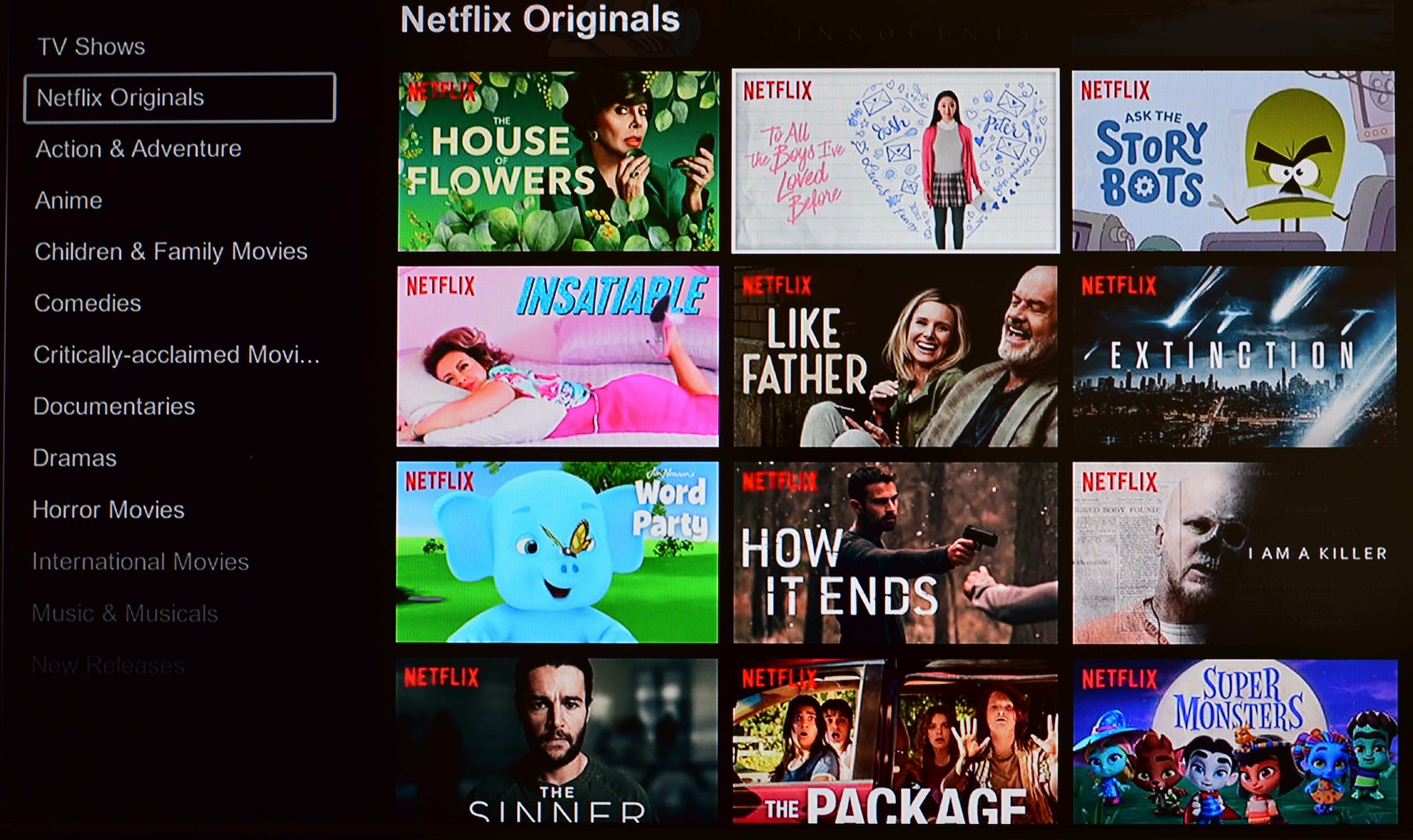The Land of Steady Habits (2018)
Full Original – Family Drama
On paper, the plot of The Land of Steady Habits reads like a compendium of American indie clichés. A middle-aged suburban man Anders (Ben Mendelsohn) faces an existential crisis in which he realizes – like so many indie film characters before him – that the material comfort he has accumulated does not make him happy. Neither does his marriage and family, as he finds himself alienated to varying degrees from wife (Edie Falco) and adult son (Thomas Mann) in this case. When the film’s action begins, Anders has already left his wife but also paradoxically can’t let go of her emotionally. Proceeding down the indie film checklist, Anders forms an unlikely friendship, in this case with the son of his friends – Charlie (Charlie Tahan) – a fellow outsider in the community who happens to be struggling with substance abuse issues. Anders also then does the indie thing of embarking on a new relationship after a string of unhappy encounters with random women.
This plot synopsis, however, does not do justice to the film. Even with this abundantly clichéd material The Land of Steady Habits proves to a deceptively powerful – albeit somewhat bleak – and expertly crafted study of American suburban life. Two aspects of the film in particular are worth highlighting as elements that elevate it above peers ranging back to the most famous (though not necessarily best) studies in suburban disenchantment, such as American Beauty or Garden State.
The first of these is the high caliber acting. Everyone in the cast is terrific and genuinely lives their characters. Edie Falco continues to show she is much more than Carmela Soprano; Connie Britton, Elizabeth Marvel and Bill Camp turn their characters into much more than the peripheral figures they might have otherwise been; and there are performances of great promise from Thomas Mann and Charlie Tahan.
But towering above them all is a central performance from Ben Mendelsohn which should be getting Oscar buzz, though a confluence of factors including the collective silent treatment Netflix gets from the Awards institutions will likely mean that none will be forthcoming. If you ever made the mistake of thinking Kevin Spacey was a truly great actor, compare his cheesefest monologuing performance in American Beauty (if you can get past how dated the storyline about him supposedly coming on to the teenage boy now is) to the bravura performance Mendelsohn gives here playing a very similar character.
Mendelsohn brings Anders to life with a committed performance complete with a way of speaking and an overall body language that is simultaneously appropriate to the character, unique from any other character Mendelsohn has ever played, and completely recognizable from real life. Based on this and the craftsmanship he has shown in other roles, it is no exaggeration to call him, as one critic recently did, one of the greatest actors of his generation. Mendelsohn’s Anders is consistently restless with an air of befuddlement, unsure of why exactly he is doing any of the things he does. This lack of surety leads him to continuously doubt all of his own actions, particularly as these lead to worse and worse outcomes for him and the people around him. This observation leads to the other aspect of the film that sets it apart: writer/director Nicole Holofcener’s screenplay.
With the exception of one rather cringey monologue when Anders rattles off his reasons for leaving banking, Holofcener avoids the kind of obvious expository dialogue that so many other indies have indulged in over the years (again, see American Beauty), instead she leaves it to her actors to show us how they feel, rather than telling us.
In a related decision, Holofcener also makes a crucial departure from the genre (and indies with existential pretensions are definitely their own genre by now) by giving us a rather unclear resolution. The handbook would say that Anders must be redeemed and learn something by the end. The ending is a bit more upbeat than the film as a whole: the son has gotten his life in order by enrolling in grad school (LOL! As if that is the way to find financial and emotional stability!), Helene (Falco) is adjusting to not living in the family home anymore and Anders and Barbara (Britton) are continuing to see each other.
For at least one critic, this seemed forced and unconvincing, but I think this misses the point. The end of the film shows us that there is no climactic moment of realization in Anders’s story, just as there aren’t in real life. One just keeps shuffling along trying to do better. Redemption is for those other indies, The Land of Steady Habits is one of that rare breed of film that dares to say we only learn in small increments (if we learn at all) and that the important part is that we keep trying to get better.
Netflix Tendencies
Netflix Stars
Anyone who has watched Bloodline will have already realized that Ben Mendelsohn is a genius. If you haven’t, do yourself a favor and watch season 1. Then do yourself another favor and stop there.
Elizabeth Marvel is one of these actors who is in everything these days, including a couple of Netflix original productions/acquisitions: House of Cards and The Meyerowitz Stories. She is also in the later seasons of Homeland which is licensed by Netflix in a number of markets.
Underrepresented Groups
Nicole Holofcener is one of America’s leading auteurs, but her career has been underdeveloped relative to her male peers. Film scholar Alisa Perren points to her in particular in her book on Miramax as a figure unfairly overlooked in the heyday of indie cinema in that decade.
So it would seem that Netflix is righting some historical wrongs by making this film, and they definitely have. But let’s not forget that: A) in the time it took for Holofcener to get her first project onto the platform, McG has made two films for Netflix (with a third on the way) and the company has released what seems like 1,000 Adam Sandler-related films; and B) the film played in Toronto, in the midst of a fall festival season that had everyone talking about Netflix films like Roma, Buster Scruggs and July 22 among others, with these male auteur films completely overshadowing Holofcener’s film. There is still some way to go until we reach gender parity on Netflix.


[…] apparent lack of a clear genre label like “action” or “horror”, films like Private Life, or The Land of Steady Habits, or The Meyerowitz Stories still make up a body of work that is just as cohesive as any other genre […]
LikeLike
[…] at the Toronto Film Festival days later with poor receptions for Outlaw King, Hold the Dark and The Land of Steady Habits (though I, for one liked Land). On other fronts, we will remember the teen romcom successes of […]
LikeLike
[…] same kind of female auteur hype that was given by Netflix to Tamara Jenkins, Nicole Holofcener (for The Land of Steady Habits) or Susanne Bier. Whether this was because the film was only acquired for the US and Canada or […]
LikeLike
[…] Elizabeth Marvel also appears in Netflix original films and series including House of Cards, Unbelievable and The Land of Steady Habits. […]
LikeLike
[…] Mendelsohn has also starred in the Netflix film The Land of Steady Habits as well as the Netflix series […]
LikeLike
[…] Source link […]
LikeLike